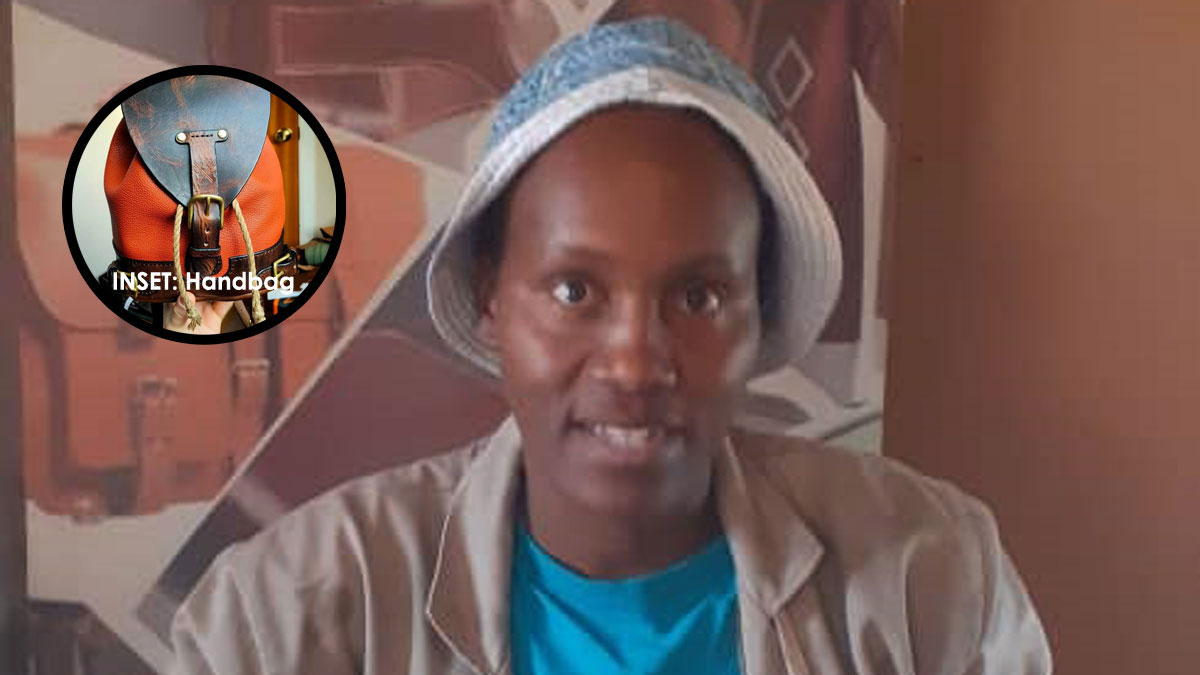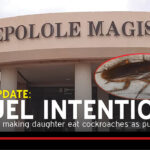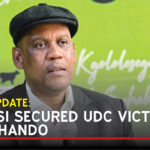Meet local leathersmith and lecturer, Dineo Gobatilwe
“Those cattle hides at BMC are exported to SA and Zim for tannery, which in turn we import back into the country at a steep cost.”
Dineo Gobatilwe has spent the last 8 of her 34 years immersing herself in her craft after graduating with an Associate Degree in Textile Design from Limkokwing University in 2015.
A perfectionist, the talented tradeswoman is a Textile Design Lecturer and Leatherwork Trainer at brigades and vocational schools, training individuals and beneficiaries of the poverty eradication programme.
She attained a Certificate in Vocational Education and Training through Botswana Open University (BOU) and later did Leather Tannery and Leatherwork courses under the Ministry of Agriculture’s Department of Animal Production in Gaborone.
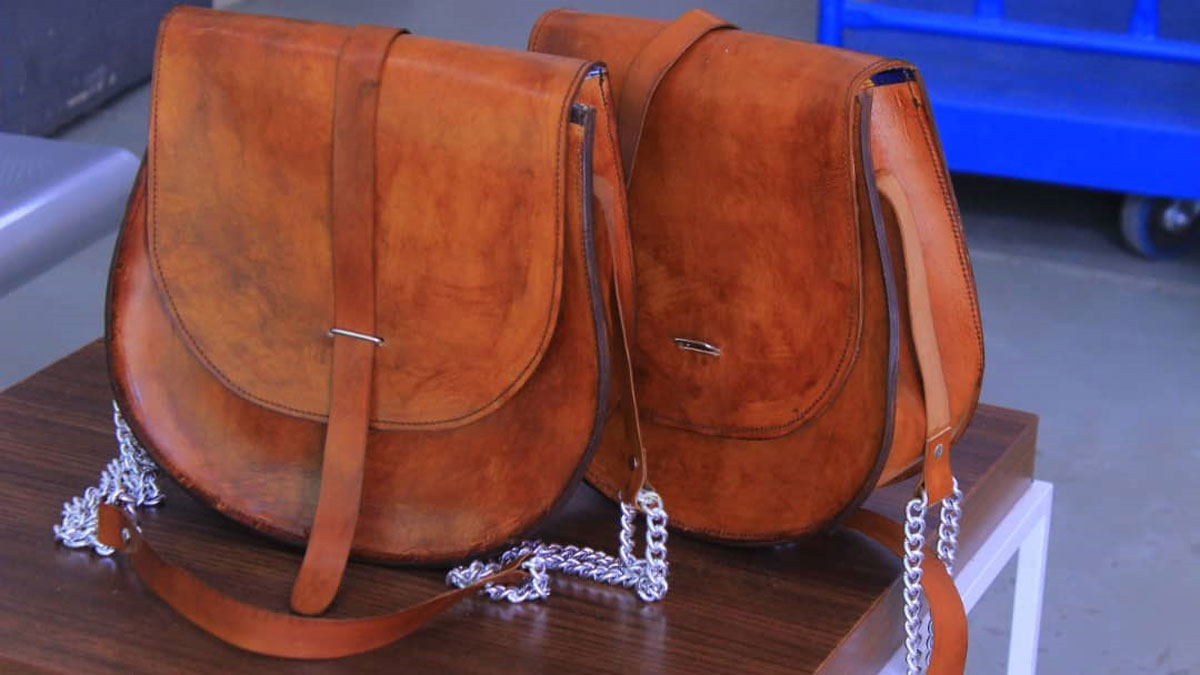
As women’s month draws to a close, Voice Woman speaks to the Palapye-based mother-of-two, who is the owner of Dinny’s Leatherworker (PTY) Ltd, a company that manufactures genuine leather products such as sandals, belts, handbags, luggage bags, school shoes and equine equipment.
Give us a brief background of your business.
In October 2015, I received funding from the Youth Development Fund (YDF) here in Palapye.
That’s when Dinny’s Leatherwork & Leather Crafts (PTY) Ltd was born; a 100% citizen company owned by a woman based in Palapye’s Thomadithotse ward next to ZCC church.
We also have a stall at River View mall.
Equipped with leather sewing machines, skiving machine and a finishing machine, the company’s workshop has 4 employees: 2 female youths and 2 men.
Dinny’s Leatherwork specializes in genuine leather products, e.g. bags: handbags, luggage bags, backpacks, traditional attires, traditional mats, leather frames, saddlery, belts, wallets, and footwear: school shoes, farmers’ shoes as well as leather accessories like beads (ostrich egg shell) etc.
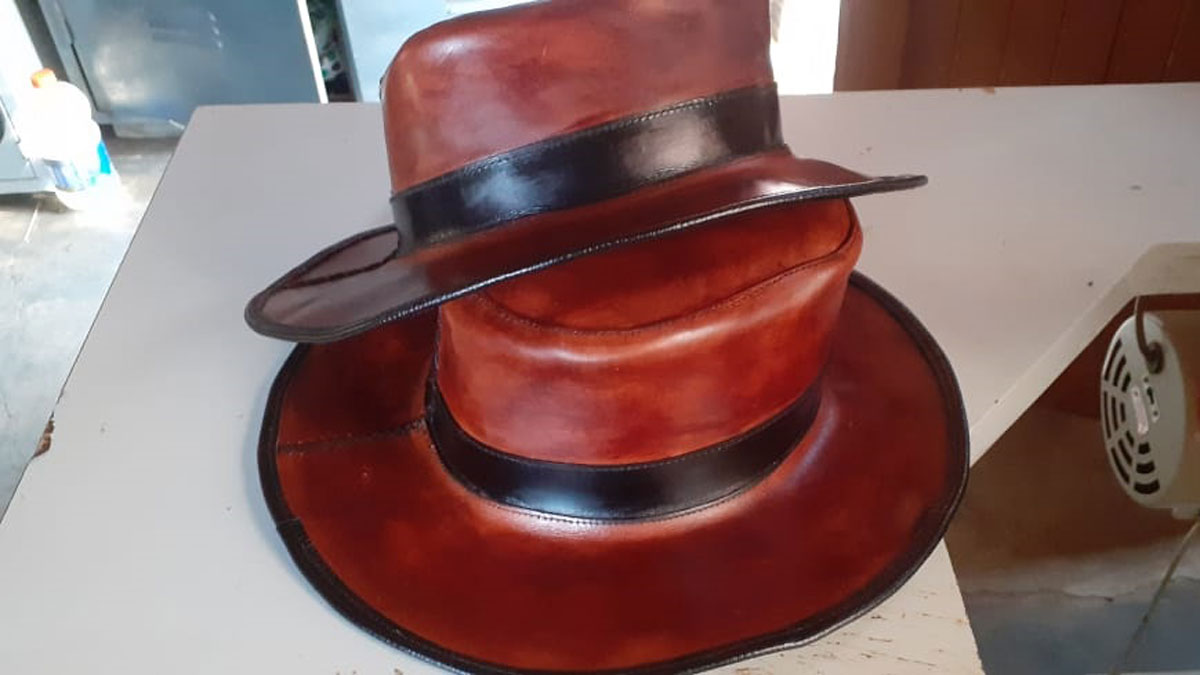
The company is registered with CIPA, PPADB, EDD, BURS, and has trading licenses (manufacturer and agent operators – suppliers). Moreover, I am a leatherwork trainer of beneficiaries of the poverty eradication programme.
What inspires you?
I love leather products because of the high durability.
Most of my customers are youthful, so they’re fashion-conscious.
I always make sure to design stylish products that they’ll like.
Where do you source your materials?
I source my materials from South Africa and Zimbabwe because here in Botswana we don’t have a tannery.
Those cattle hides at BMC are exported to SA and Zim for tannery, which we, in turn, import back into the country at a steep cost.
Surely delays in the development of the proposed Leather Park in Lobatse are a thorn in the industry’s flesh…
I always try, whatever chance I get, to speak to the minister or permanent secretary about this issue because it is a major challenge for our industry.
If I can tell you, of the 15 of us who did the leatherwork course, I am the only one still in the business.
The high cost of importing hides/skins has discouraged many.
The proposed Leather Park will be a boon to us entrepreneurs to source materials thus will help create much-needed employment.
Leather entrepreneurs face an uphill battle growing their businesses or staying afloat.
It’s only that I have passion; I love working with leather, and I like being unique.
My dream is to open a leather tannery, and for the leather industry to be recognised.
Our government is failing to make Botswana the hub of hides and skins since we’ve one of the biggest cattle populations.
We have formed a leather association in Botswana to work together on this issue.
How do you market the leather products and do you have branches elsewhere in the country?
We have a Facebook page, Dinny’s Leatherworks.
Attending various expos also helps; like the Dubai Expo 2021, women’s and youth expo, Global Expo, the flea market through LEA and Central District Council in Palapye as well as sharing my business journey in the media.
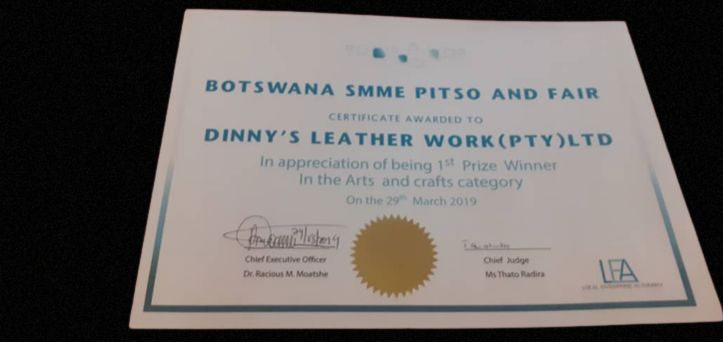
I don’t have any branches at the moment, but planning to do that in Gaborone, Maun and Kasane.
Wow! Interesting. When can we hope to see your products, especially school shoes, in chain stores like Pep, Ackerman’s, Woolies or Jet?
We’ve just begun manufacturing school shoes this year as we’ve been perfecting the designs.
We are now confident to approach the stores.
As for other products like handbags, sandals, leather frames and other leather accessories, we display them at the Khama Rhino Sanctuary.
What challenges do you face?
Most challenging is the right business location; I work from home, so it’s a bit challenging because most customers are not able to reach the workplace.
If you’ve got the right location, then rent becomes a problem again, so you end up weighing up options and preferring to work from home.
Expensive leather: leather is really expensive.
You end up selling the products at a high price to cover the cost and some customers deem your products expensive thus prefer Chinese counterfeits.
This really affects the business because you end up not making any profit with stock that stays on the shelf for a long time.
If the leather park can open, it will be of great benefit to us.
What do people need to know about your craft?
There’s nothing like masculine work; just follow your passion.
People will always talk, whether you do well or not, take that as feedback and focus.
Closing thoughts?
MYSEC funded Dinny’s Leather Work under YDF and provides mentorship, thus I usually participate in youth expo, Dubai 2020 and 2021 expos.
In 2017, I began collaboration with LEA where they offer me short business courses, mentorship, and an opportunity to exhibit at SMME expos.
I have registered the pride mark under Brand Botswana, who have invited the company to the Global expo and workshops; Business Botswana, too.
Department of Gender Affairs also occasionally invites the company to exhibit at the annual Women’s Expo, which I scooped position 1 in the ‘My Art and Craft’ category.
I train the Livestock Management and Infrastructure Development (LIMID) Programme beneficiaries under leatherwork at Mahalapye RAC (Council).
I work with the Palapye RAC Home Economics office participating in flea markets; I just got a tender from them to manufacture, supply and deliver school shoes to the orphans and needy in Palapye and surrounding areas, for primary and secondary school students.

How many young entrepreneurs do you mentor?
I do mentor 3 entrepreneurs; 1 in Palapye and 2 outside Palapye.
I taught them leatherworks in Mahalapye and they are doing quite well.


